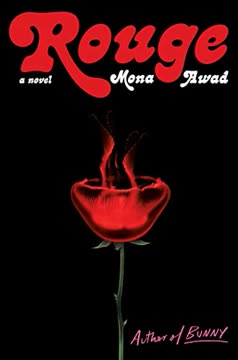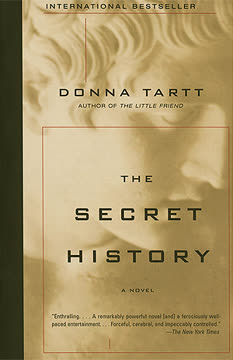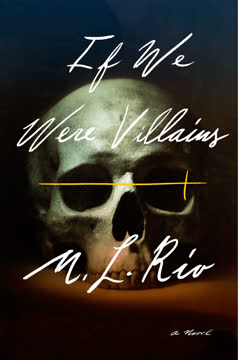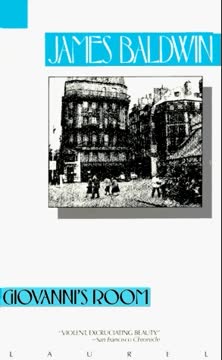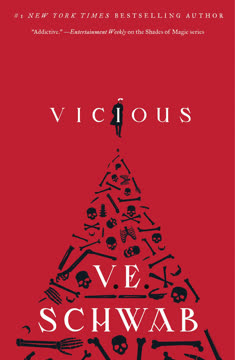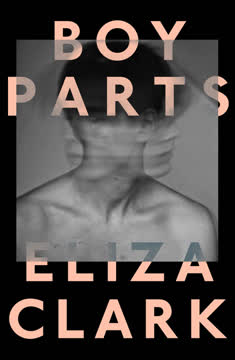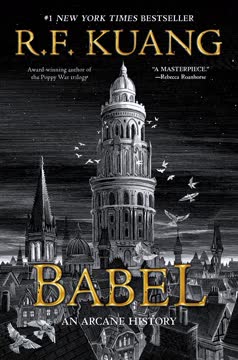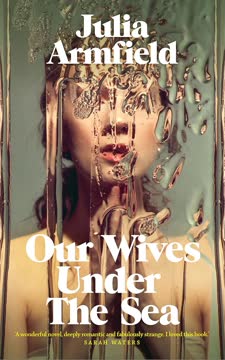Plot Summary
Prologue: A Stranger's Ride
Charlie, a lonely warehouse worker, is stranded in the rain after his shift. Two teenage boys, Julian and Paul, offer him a ride home. Their conversation is polite, but something is off. Charlie drinks soup offered by Julian, only to realize too late that he's been drugged. The boys, coldly efficient, bind him and drive off into the night, their faces tense with fear and anticipation. This chilling prologue sets the tone: violence and intimacy are intertwined, and the reader is thrust into a world where the boundaries of morality are already blurred. The boys' fear is palpable, but so is their resolve. The act is not just a crime, but a test of their connection and their willingness to cross lines together.
Family Shadows and Scars
Paul's family is haunted by loss and mental illness. His mother, numbed by medication, drifts through life, while his sisters, Audrey and Laurie, cope in their own ways. The family gathers for a party, but the air is thick with unspoken grief—Paul's father's suicide has left a void. Paul feels alienated, scrutinized by relatives who see him as fragile and strange. His only solace is in his grandfather's quiet understanding and his own attempts at self-improvement, which he documents obsessively. The family's Jewish heritage and working-class background add layers of expectation and difference. Paul's sense of being an outsider is sharpened by his mother's sadness and the family's inability to move on, setting the stage for his hunger for connection and meaning.
Collision in the Classroom
At college, Paul is isolated, but a philosophy class changes everything. A debate about scientific ethics draws Paul out, and Julian, a charismatic, well-dressed student, notices him. Their intellectual sparring is electric—Julian is fascinated by Paul's uncompromising moral stance, while Paul is drawn to Julian's confidence and wit. After class, Julian pursues Paul, and their conversation is a dance of challenge and recognition. Julian's background is privileged but fraught; Paul's is humble and wounded. Their differences are magnetic. Julian invites Paul into his world, lending him books and sharing his passions. The seeds of obsession and dependence are sown, as each sees in the other a reflection of what they lack.
The Spark of Friendship
Paul and Julian's friendship deepens rapidly, fueled by shared intellectual curiosity and emotional need. Paul is captivated by Julian's brilliance and attention, while Julian is drawn to Paul's sincerity and intensity. They spend hours together, debating philosophy, art, and the nature of morality. Paul's family is wary but relieved that he has a friend. The boys' connection is both exhilarating and fraught—Paul is desperate to be seen and loved, while Julian craves someone who will challenge and need him. Their intimacy grows physical, but always with an undercurrent of danger and power. The outside world fades as they become each other's universe, setting the stage for the destructive codependency to come.
Intimacy and Isolation
As Paul and Julian's relationship becomes romantic and sexual, their isolation from others intensifies. Paul is both thrilled and terrified by his feelings; Julian is alternately tender and cruel, testing the limits of Paul's devotion. Family dinners and social outings become battlegrounds for their secret, as Paul struggles to reconcile his love for Julian with his family's expectations and his own self-loathing. Julian's presence is both a balm and a threat—he charms Paul's family but also exposes their vulnerabilities. The boys' need for each other becomes all-consuming, and their inability to communicate honestly sows seeds of resentment and misunderstanding. The world outside their bond grows increasingly irrelevant.
Games of Conscience
Paul and Julian's intellectual games turn darker, as they debate the nature of evil, obedience, and responsibility. Inspired by real-world atrocities and psychological experiments, they challenge each other to imagine what they would do in extreme situations. These games are not just theoretical—they become a way to test the boundaries of their own morality and their power over each other. The line between play and reality blurs, and violence becomes an undercurrent in their relationship. Paul's desire to matter, to leave a mark, is twisted by Julian's provocations. Their shared sense of alienation and superiority feeds a growing contempt for the world and a willingness to transgress its rules.
The Dinner Table Divide
Paul is drawn into Julian's world of privilege, meeting his family and witnessing the cold, controlling dynamics that shaped Julian. The Frommes are wealthy, cultured, and emotionally distant; their expectations for Julian are suffocating. Paul, in turn, brings Julian into his own working-class, Jewish home, where warmth is mixed with anxiety and suspicion. Both boys feel like outsiders in each other's families, and their differences in class and upbringing become sources of tension and fascination. The families' inability to understand or accept the boys' bond only deepens their dependence on each other. The sense of being misunderstood and persecuted by the world cements their alliance—and their isolation.
The Bridge Between Worlds
As the boys' relationship grows more intense and unstable, they begin to fantasize about committing a crime together—a perfect act that will prove their superiority and bind them forever. Their discussions, at first abstract, become chillingly concrete. They select a victim, plan the logistics, and rehearse their roles. The bridge, both literal and symbolic, becomes the site of their imagined transcendence—a place where they can leave behind the constraints of ordinary life and morality. The plan is a test of loyalty, courage, and love, but also a way to escape the pain of their own lives. The world narrows to the two of them and the act they are about to commit.
Summer Letters, Winter Distance
A summer apart tests the boys' bond. Letters are their lifeline, but distance breeds insecurity and obsession. Paul's need for reassurance grows desperate, while Julian's responses become evasive and cold. Each is tormented by the fear of abandonment and the impossibility of true understanding. The outside world intrudes—family crises, money troubles, and the threat of exposure. When they reunite, the intensity of their connection is both a relief and a burden. The plan, once a fantasy, becomes a necessity—a way to resolve the unbearable tension between them and to assert control over their fate.
The Plan Takes Shape
The boys meticulously prepare for their crime, rehearsing every detail and constructing alibis. Their intellectual games have become deadly serious. The act is no longer just about proving themselves to each other—it is about survival, identity, and the need to escape the world's judgment. As the day approaches, their relationship is strained by fear, guilt, and the knowledge that nothing will ever be the same. The plan is both a culmination of their love and a betrayal of everything they once valued. The bridge awaits, and with it, the end of innocence.
Endgame: The Act
The crime is committed with chilling efficiency. The victim, chosen for his perceived moral weakness, is lured, drugged, and killed. The boys are both participants and witnesses, each needing the other to complete the act. The violence is both shocking and strangely intimate—a consummation of their bond and a shattering of their selves. In the aftermath, they are changed—haunted, exhilarated, and irrevocably bound. The world is no longer the same, and neither are they. The act that was supposed to set them free becomes a new kind of prison.
Aftermath and Unraveling
The boys struggle to maintain their composure as the investigation closes in. Guilt, paranoia, and mutual suspicion erode their relationship. Family and friends sense that something is wrong, but cannot penetrate the boys' secrecy. The police investigation is relentless, and small mistakes threaten to unravel everything. Paul and Julian turn on each other, each fearing betrayal. Their love, once a source of strength, becomes a weapon. The consequences of their actions ripple outward, destroying the fragile world they tried to create.
The Weight of Consequence
The truth cannot be hidden forever. The police close in, and the boys are forced to confront what they have done. Interrogations, legal threats, and the reactions of their families strip away the last illusions. Each must decide whether to protect the other or save himself. The cost of their crime is measured not just in legal terms, but in the destruction of trust, love, and self. The world's judgment is harsh, but their own is harsher. The dream of transcendence is revealed as a nightmare of isolation and regret.
The Final Choice
In the aftermath, Paul and Julian are separated—by law, by family, and by their own choices. Each is left to reckon with the consequences alone. Attempts at reconciliation are fraught and ultimately futile. The love that once seemed all-powerful is revealed as fragile and destructive. Paul is left with memories, guilt, and the knowledge that he cannot undo what has been done. The world moves on, but he is marked forever. The final choice is not between love and hate, but between survival and oblivion.
Epilogue: The Opening Move
Paul, alone, reflects on what has happened. The chess game that once symbolized possibility now marks the beginning of the end. The photograph of the two boys, once radiant with hope, is now a relic of a lost world. The opening move is circled in red—a reminder that every game, every love, every act of violence begins with a choice. The story ends not with resolution, but with the knowledge that some wounds never heal, and some games can never be won.
Characters
Paul Fleischer
Paul is the novel's protagonist, a sensitive, intelligent, and deeply alienated young man. Scarred by his father's suicide and his mother's emotional absence, Paul is obsessed with self-improvement and the need to matter. His Jewish, working-class background sets him apart from his peers, fueling his sense of being an outsider. Paul's relationship with Julian is both salvation and damnation—he is drawn to Julian's brilliance and confidence, but also manipulated by his cruelty and need. Paul's psychological journey is one of longing for connection, wrestling with guilt, and ultimately confronting the darkness within himself. His development is marked by increasing dependence on Julian, a willingness to transgress moral boundaries, and a final reckoning with the consequences of his choices.
Julian Fromme
Julian is Paul's friend, lover, and co-conspirator—a privileged, mercurial young man whose charm masks deep wounds. Raised in a wealthy but emotionally barren family, Julian is both entitled and desperate for genuine connection. He is fascinated by Paul's sincerity and moral rigor, but also tests and manipulates him, pushing the boundaries of their relationship. Julian's intelligence and wit are matched by a capacity for cruelty and self-destruction. His need to be needed, to be seen as exceptional, drives much of the plot. Julian's psychological complexity is revealed in his shifting roles—victim, seducer, partner in crime—and his ultimate inability to escape the consequences of his actions or the pain of his own isolation.
Ruth Fleischer (Paul's Mother)
Ruth is a central figure in Paul's life, her emotional state shaping much of his experience. After her husband's suicide, she becomes withdrawn and dependent on medication, leaving her children to fend for themselves emotionally. Her love for Paul is genuine but often suffocating, and her inability to move on from grief creates a climate of anxiety and guilt. Ruth's relationship with Paul is marked by misunderstanding and mutual longing for connection. As the story progresses, she struggles to protect her son from the world and from himself, ultimately forced to confront the limits of her love and the reality of his choices.
Audrey Fleischer
Audrey, Paul's older sister, is a voice of reason and rebellion in the family. She is quick-witted, sarcastic, and deeply loyal, often acting as a buffer between Paul and their mother. Audrey is suspicious of Julian and wary of the intensity of Paul's attachment to him. Her own struggles with identity and belonging mirror Paul's, but she channels her energy into activism and self-expression. Audrey's relationship with Paul is complex—she is both protective and critical, offering support but also challenging his self-destructive tendencies. Her presence grounds the family, even as she battles her own demons.
Laurie Fleischer
Laurie, the youngest Fleischer sibling, is often overlooked but deeply perceptive. She witnesses the family's pain and Paul's struggles with a clarity that belies her age. Laurie's innocence is both a source of comfort and a reminder of what has been lost. Her relationship with Paul is marked by moments of genuine connection and understanding, offering him glimpses of hope and normalcy. Laurie's presence in the story highlights the impact of trauma on the youngest and most vulnerable, and her quiet strength is a counterpoint to the chaos around her.
Henry Fromme
Julian's older brother, Henry, is the embodiment of family expectations—successful, dutiful, and emotionally repressed. He serves as a foil to Julian, representing the path of conformity and obedience that Julian rejects. Henry's attempts to help Julian are well-intentioned but ultimately futile, as he cannot understand or reach his brother. His relationship with Julian is marked by rivalry, disappointment, and a longing for approval. Henry's presence in the story underscores the pressures of privilege and the cost of failing to meet familial ideals.
Ruth's Parents (Paul's Grandparents)
Paul's grandparents are pillars of the family, offering stability and support in the wake of tragedy. Their working-class values and Jewish heritage shape Paul's identity and sense of duty. They are both nurturing and demanding, expecting Paul to rise above his circumstances while also fearing for his fragility. Their relationship with Paul is marked by generational misunderstanding and a deep, if sometimes misguided, love. They represent the weight of history and the struggle to protect the next generation from repeating old mistakes.
Charlie Stepanek
Charlie is the man chosen by Paul and Julian as the target of their crime. He is depicted as an ordinary, lonely man—his life marked by disappointment and routine. Charlie's selection is both arbitrary and symbolic; he represents the banality of evil and the ease with which ordinary people can become victims. His death is the act that binds Paul and Julian together and sets in motion the unraveling of their lives. Charlie's presence in the story is a haunting reminder of the consequences of abstract moral games played out in the real world.
Detective Benton
Detective Benton is the investigator who pursues the truth behind Charlie's death. He is intelligent, methodical, and unafraid to manipulate suspects to get results. Benton's interactions with Paul are marked by a mix of empathy and calculation—he recognizes Paul's vulnerability but is determined to uncover the facts. His presence in the story brings the outside world's judgment to bear on the boys' insular universe, forcing them to confront the reality of their actions. Benton's role is both adversarial and, at times, oddly compassionate.
Joy Greenwood
Joy is a friend from Julian's privileged world, offering a glimpse of life outside the boys' obsessive bond. She is kind, perceptive, and ultimately powerless to intervene in the unfolding tragedy. Joy's presence highlights the differences between Julian's public persona and his private self, and her attempts to help are met with both gratitude and frustration. She serves as a mirror for the boys' relationship, reflecting both its intensity and its destructiveness. Joy's inability to save Julian or Paul underscores the limits of friendship in the face of overwhelming need.
Plot Devices
Dual Protagonists and Mirrored Psychology
The novel's structure is built around the intense, mirrored relationship between Paul and Julian. Their psychological interplay—need, dominance, vulnerability, and cruelty—drives the narrative. The story is told primarily from Paul's perspective, but Julian's influence is pervasive, shaping every thought and action. Their bond is both a refuge and a trap, and the narrative structure reflects their growing isolation from the world. The use of mirrored scenes—family dinners, intellectual debates, moments of violence—reinforces the theme of duality and the impossibility of true understanding.
Foreshadowing and Symbolism
The novel is rich in foreshadowing, with early scenes and motifs—chess games, bridges, art, and philosophical debates—hinting at the violence and betrayal to come. The chess game, in particular, serves as a metaphor for the boys' relationship and the unfolding of their plan. The bridge is both a literal site of transformation and a symbol of the crossing of moral boundaries. The use of art and intellectual games as plot devices underscores the dangers of abstraction and the seduction of ideas divorced from empathy.
Unreliable Narration and Psychological Realism
The narrative is deeply psychological, blurring the line between reality and perception. Paul's introspection is both a strength and a weakness—his need to document, analyze, and justify his actions creates a sense of unreliability. The story is punctuated by moments of dissociation, memory gaps, and emotional overwhelm, reflecting the characters' inability to fully grasp or control their own motives. The use of journals, letters, and fragmented memories adds to the sense of instability and the difficulty of arriving at a single, objective truth.
Moral Philosophy as Plot Engine
The boys' intellectual debates are not mere background—they are the engine of the plot. Questions of obedience, evil, and responsibility move from the classroom to the real world, with devastating consequences. The novel uses real-world psychological experiments and historical atrocities as touchstones, challenging the reader to consider the dangers of abstracting morality from lived experience. The transition from theory to action is gradual but inexorable, and the consequences are both personal and universal.
Circular Structure and Thematic Closure
The novel's structure is circular, beginning and ending with acts of violence and the impossibility of return. The epilogue, with its reference to the opening move of a chess game, underscores the idea that every choice is both an end and a beginning. The story resists easy resolution—love does not redeem, justice is incomplete, and the wounds inflicted are permanent. The use of recurring motifs and mirrored scenes creates a sense of inevitability, reinforcing the tragic arc of the narrative.
Analysis
These Violent Delights is a harrowing exploration of obsession, alienation, and the seductive power of ideas. Set against the backdrop of 1970s Pittsburgh, the novel interrogates the ways in which trauma, privilege, and intellectual arrogance can combine to create a perfect storm of violence. At its core, the story is about two boys who find in each other both salvation and destruction—a love so intense that it becomes indistinguishable from hate. The novel's psychological realism is unflinching, refusing to offer easy answers or redemption. Instead, it asks what happens when the need to matter, to be seen and understood, overrides empathy and moral restraint. The use of real-world philosophical debates and historical references grounds the story in a broader context, challenging readers to consider the dangers of abstraction and the limits of self-knowledge. In a modern context, the novel resonates as a cautionary tale about the perils of insularity, the seduction of transgression, and the enduring human hunger for connection—even at the cost of everything else.
Last updated:
Review Summary
These Violent Delights receives mixed reviews, with many praising its beautiful prose and intense exploration of obsessive relationships. Readers find the characters complex and the story gripping, though some criticize it as overwritten or difficult to follow. The book is often compared to "The Secret History" and explores themes of toxic love, violence, and queer identity. While some readers were deeply moved by the novel, others found it pretentious or struggled to connect with the characters. The ending is particularly divisive, leaving many readers stunned.

